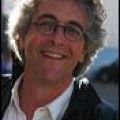Visiting faculty testimonial: Mark Schapiro
Read Californian investigative journalist Mark Schapiro's report on his time co-teaching the Mundus Journalism course module Analytical Journalism.

Mark Schapiro, Aarhus University and Danish School of Media and Journalism, co-teacher, Analytical Journalism 2013 and 2014. Author, Carbon Shock: A tale of risk and calculus on the front lines of a disrupted global economy, published September 2014.
The course emphasises a skill set that we believe is one of the growth areas for jobs in the shifting media landscape...By the end of the course, after writing and reporting exercises, and reading and discussion of the academic literature pertaining to the journalistic ethos and relationship to their subject matter, students are taking a longer view of story development. They show an ability to structure stories that convey the meaning of events, rather than simply the events themselves, and an approach to story structure founded on the building blocks of evidence.
Over the past three years of co-teaching the Analytic Journalism course, we have accomplished an important step in journalism education: a curriculum which emphasises the application of a journalist's knowledge to complex international topics. We have focused our class under the overall rubric of climate change and international justice — the latter of which we've come to broadly interpret as the application of one nation's legal principles to another nation, including immigration, foreign aid programs and the functioning of international organizations, as well as the prosecution of war criminals. These broad rubrics were chosen because they are areas of great flux and tension in the international order, and are thus ripe for journalistic intervention.
We have successfully steered students to think not of the latest developments -- yesterday, the day before that, or today - but to keep an eye on the significance of events: We aim to develop the skills for communicating not the first but the third or fourth drafts of history. Our hope has been to train journalists who can cut through the 24/7 news cycle to offer insights into the significance and implications of current events, to identify the underlying interests and mechanisms at work that might not otherwise be clear to the public; to offer a perspective based firmly on evidence.
Broadly speaking, Flemming Svith and I have divided responsibility for the course: He takes overall responsibility for the academic framework of our approach to analytic journalism -- reading of the media studies literature, definitions of media frames, the journalists' ethos, and the overarching requirements of the meta section of the exams. I, broadly speaking, take on the overall application of these ideas to the practice of journalism - to story-telling; reporting strategies; and an understanding of how journalists can play a key role in engaging with the major issues facing us today.
We aim ultimately to provide journalists with the skills to act as 'navigators' through the complex issues of our time, to discern meaning from the blizzard of disassociated 'facts' that come to us daily through internet news sources. The course aims to develop skills among students to pierce through the abundance of disconnected events to articulate the significance and implications of the ‘news’. In the process, we emphasize the critical contribution of journalists to the ebb and flow of ideas in a dynamic and deliberative democracy.
The course emphasizes a skill set that we believe is one of the growth areas for jobs in the shifting media landscape. Such positions increasingly put a premium on journalists with a combination of distance from and intimate knowledge of their subject matter, the story-telling skills to communicate that knowledge, and a voice that can cut through all the competing bits of ‘news’ to offer original insights and analysis.
The results can be seen over the course of our six weeks of instruction. Students often show an initial predisposition for event, or news-oriented, reporting. By the end of the course, after writing and reporting exercises, and reading and discussion of the academic literature pertaining to the journalistic ethos and relationship to their subject matter, they are taking a longer view. They show an ability to structure stories that convey the meaning of events, rather than simply the events themselves, and an approach to story structure founded on the building blocks of evidence.
And while many approach the 'meta' component of the exam with some uncertainty in the early phases of the class, by the end of the course exams often feature highly articulate explications of why they made the choices they made in the course of assembling the story — the contribution of quotes and documentary evidence to supporting their thesis and the means by which they established an authorial voice. And they evince a clear understanding of a central facet of the course: to move away from a reiteration of existing common wisdom -- 'frames' -- toward expanding and enriching our understanding of the issues at play.